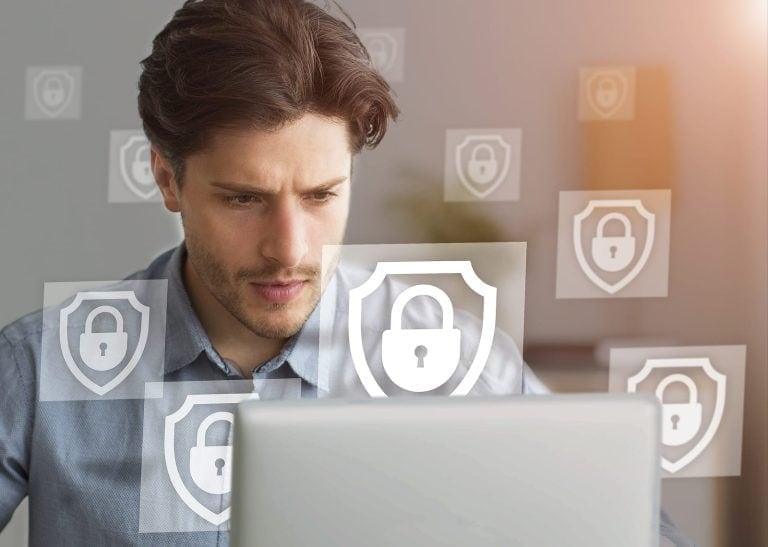Online privacy is such a big topic these days that it gets a huge amount of exposure in the media. We are hearing about customer details being stolen or leaked. If all of this can happen to business, where does it leave all the people who connect to the internet from home?
Table of Contents
ToggleHere are four ways that you can incorporate into a security regime to protect your online privacy.
Malware Protection
In an ideal world, all software would do precisely as it is supposed to do. It is unfortunate there are many people who have found ways of taking advantage of people. Many ways they do this is by installing software along with other installations.
This can then run out of sight and steal your personal information, find its way into your bank accounts and hold your computer ransom (Ransomware). These coders continually find new ingenious ways of getting these programs onto your computer.
Malware Protection packages have taken over from Antivirus software packages. They now include spam filtering, and now they have started to incorporate family safety.
VPN Services
When you browse the internet, your IP address is visible to anyone who knows how to locate and track you. Using one of the many VPN services your IP address will be hidden from view. They hide your computers address so good; you can even appear to be in another country from where you are located.
With this VPN (Virtual Private Networks) you can have the choice of free ones, or there are paid for options which give you better services. These are more suited to home or business use then it makes the cost a more viable option for a family or business security.
These VPN’s are ideal when you are roaming and in locations where you can connect to open WI-FI hotspots. These areas are rife with people connecting who are seeking computers who have little or no protection.
Browsers
There are many browsers available now and most of them do a pretty good job of filtering the junk and threats that you are continually faced with. It is possible though to beef up security on your browser using browser extensions.
Googles Chrome is the largest based browser in the world, and many of these alternative browsers are based on Chrome. This makes it easier to find extensions which work straight out of the box.
Extensions which are available include ad blockers, browser-based firewalls and other extensions that specifically filter certain things before they reach your computer. Some browsers even ask if you wish to delete your browsing history once you have finished.
This way there is no way for any software to track what sites you have visited, and no passwords or login details will remain on your system.
These browsers achieve this by the option of private browsing. If you use this option, it is not only your browsing history that is deleted, any cookies or temporary internet files are also wiped when your session is finished.
Educate Yourself and Your Family
You can have all of the above installed and running on your system, yet if you do not follow through with the whole protecting privacy regime, you will still leave yourself open for attack.
To encompass all of what you should be aware of when online is simplified here. It is not about installing and running anything; it is more about you being aware of the risks and how you can make it easy for hackers to get the information they require, no matter how hard you try to keep them out.
Never reveal personal information inadvertently, and if you have children, you should explain the risks they face by doing so. New acquaintances or friends should not be privileged to personal information until you know them better.
E-mail addresses. If you sign up for anything, you should have a second account away from your personal account. This will direct all traffic to that one rather than your own account.
Pay close attention to any sites that promise a reward or a prize in exchange for your personal details. This information is more than likely being gathered for marketing purposes or something worse.
If you get a spam email, under no circumstances should you reply to it? The email might even have a unsubscribe link; yet this should not be used as then you are confirming a real person has read it.
Web Security
If you are making an online purchase, you should always check the site is secure (small padlock in the address bar) before you proceed.
Summary:
4 Ways to Protect Your Online Privacy
Online privacy is such a big topic these days that it gets a huge amount of exposure in the media. We are hearing about customer details being stolen or leaked. If all of this can happen to business, where does it leave all the people who connect to the internet from home? Here are four ways that you can incorporate into a security regime to protect your online privacy. 1. Use Malware Protection. 2. VPN Services: When you browse the internet, your IP address is visible to anyone who knows how to locate and track you. Using one of the many VPN services your IP address will be hidden from view. 3. Browsers: There are many browsers available now and most of them do a pretty good job of filtering the junk and threats that you are continually faced with. It is possible though to beef up security on your browser using browser extensions. 4. Educate Yourself and Your Family.”





